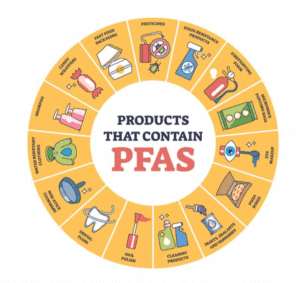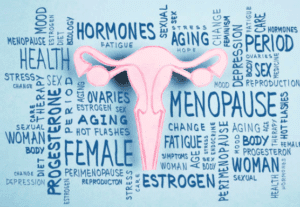Thyroid hormone imbalance is most commonly blamed for weight gain and low energy.
Recently, an Medical article was published stating that doctors should not routinely test for thyroid hormone levels unless the patient has symptoms.
Here are some of the symptoms:
- Weight gain regardless of diet and exercise, or changing nothing.
- Fatigue
- Feeling colder than everyone around you
- Dry hair, brittle nails and dry/ flaking/ cracking skin
- Hair loss
- Constipation
- Mood symptoms eg. Low mood/ depression
- Brain Fog
- Infertility
- Irregular menstrual cycles
Is there anyone without ANY of these symptoms?
I find that often symptoms exist and patients think it’s just how they are and don’t report it.
Thyroid hormone tests ordered by family physicians:
TSH (Thyroid stimulating hormone) made in your brain from your pituitary gland. It acts as a thermostat and rises when your thyroid is making less hormone than it should. It lowers into the normal range once your thyroid is producing adequate amounts of hormone and if there is adequate conversion in the tissue to the bio-active lio-thyronine (T3)
What I see in clinical practice is that being in the range’ isn’t enough. More about optimal versus normal reference ranges below.
Free T4 (Levothyroxine): Your thyroid gland produces this hormone which circulates in the blood and reaches your tissues.
The Functional Medicine Approach:
In Functional Medicine the focus is on restoring your body back to youthful balance of all systems, including hormones.
Hormones are the chemistry of life.
They help keep you feeling and functioning younger when balanced optimal ‘youthful’ levels.
At Live Younger we don’t just focus on a few hormones or ‘male hormones’ and ‘female hormones’.
There are important interactions between ‘life sustaining’ hormones and the sex steroid hormones that both men and women have.
*(sex steroid hormones include testosterone, estrogen, progesterone.)
Your thyroid hormone directs so many important functions in your body. It has a delicate balance with your hormones cortisol and insulin. (Called the Metabolic Triad). Your thyroid hormone is also influenced by estrogen. Men have estrogen too, and we see more and more men having higher levels of estrogen than normal.
Your thyroid hormone affects cholesterol levels too, a topic beyond the scope of this article.
Therefore, trying to treat thyroid hormone by itself is inadequate.
In this article, we will focus on the thyroid hormone alone. Future articles will cover other interactions.
TSH:
In many people, we see clinically that TSH is a poor indicator of actual thyroid status as far as activity goes. There is a genetic influence on TSH and enzymes that influence the production and level of TSH.
Consider TSH as the ‘thyroid shouting hormone’ in that as the thyroid produces lower levels of thyroid hormones, your brain starts to ‘shout’ at the thyroid to ‘make more’. Once the thyroid produces more hormone, in response to this stimulating hormone; the brain starts to ‘whisper’ as TSH levels fall back into a more normal range.
T4 (levothyroxine)
Produced by the thyroid gland, this is mostly inactive at a cellular level.
It requires conversion to T3 (liothyronine) by ‘de-iodination’.
T4 has 4 iodine molecules attached to it.
T3 is produced by removing one iodine molecule.
T3 (liothyronine)
This is the most biologically active hormone at the cell receptor site.
It gives you all the positive actions of ‘thyroid hormone’.
For optimal thyroid function, you need nutrients like Zinc and Selenium, Iodine, and amino acids most importantly.
You also require optimal functioning of the enzyme systems that facilitate these conversions.
If anything is out of balance or unavailable, your thyroid hormone production is affected.
Lab reference ranges:
Lab reference ranges (the low and and high end) are calculated based on the local population. A certain number of ‘normal’ people’s blood levels are used to calculate the average using a bell curve.
20 years ago, the treatment range for hypothyroidism (low thyroid) was at a TSH level above 10.
Some years later, it dropped to 6, and now 4 is the upper end of normal.
The point being made is that as science advances, guidelines are changed.
In functional medicine, where the focus is on healthy aging, longevity and optimal human performance; the focus is on wellness and feeling your best.
If your TSH is 3.2; it stands to reason that you may have many symptoms of hypothyroidism and should be treated instead of waiting for your number to reach 4.1
The same applies to T3 and T4.
One important consideration is that TOTAL T3 and T4 reflect all that is in your body but not what is available for use at a cellular level.
Thyroid hormone is carried on binding proteins.
For an adequate treatment to resolve symptoms, we look at FREE hormone levels, instead of total.
A total T3 includes the free hormone and the bound hormone.
Your free hormone levels are the most important number to look at.
For each person, their ‘optimal level’ at which they feel well differs.
The 50th percentile of Free T3 in Canada is 5.
In as much as we might want to be at the peak of the bell curve, because hormones interact with each other, are ‘blocked’ by some molecules, the level at which you feel best will be different from your child, spouse or anyone else.
Some people have complete resolution of all hypothyroid (low thyroid) symptoms at a Free T3 level of 3.8 while others feel amazing at 5.7.
There is no ideal ‘level’ to recommend based on your bio-individuality.
Other things that affect thyroid hormone levels, their production and efficacy:
- persistent organic pollutants and heavy metals
- cortisol levels
- insulin levels
- estrogen levels
- ferritin levels
To begin with assessing your thyroid hormone function, take this test to see how you are doing with your thyroid hormone.



